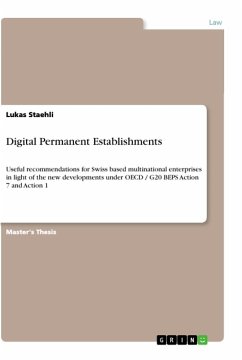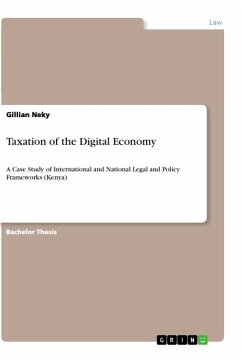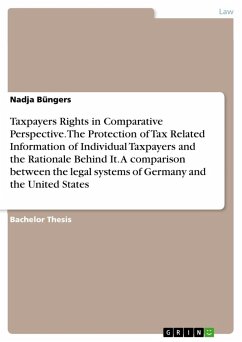Master's Thesis from the year 2019 in the subject Law - Tax / Fiscal Law, grade: 1.5, , language: English, abstract: The key objectives of this work is to outline the impact respectively challenges of the proposed new digital PE concept, notably on Swiss headquartered MNEs and to derive recommendations and potential solutions for these enterprises from a consulting standpoint. The OECD/G20 as well as the Inclusive Framework on BEPS are currently aiming to find an international tax consensus for a long-term solution, which could have a significant impact on the international corporate tax and transfer pricing landscape. The on-going tax challenges raised by the digital economy emphasize the fundamental tax policy issues. The new proposal by the OECD and EU would alter the current permanent establishment ("PE") concept in a significant way and thus have a strong influence on cross-border transactions of multinational enterprises ("MNEs"). These developments, which relate mostly to the terms nexus and profit allocation under international tax law, may affect many MNEs respectively their businesses. The outcomes may reshape the international allocation of profits (and losses) mechanism, and, moreover, the (re-)allocation of those profits (and losses) between the residence jurisdictions and the source or market/user jurisdictions. While big user/consumer markets are often located in emerging states, which are pushing for a bigger stake in global tax revenues, Switzerland as a relatively small country with stark export activities seems to be strongly affected. Recommendations for multinational enterprises in light of the new permanent establishment developments under OECD / G20 BEPS Action 7 and Action 1.
Hinweis: Dieser Artikel kann nur an eine deutsche Lieferadresse ausgeliefert werden.
Hinweis: Dieser Artikel kann nur an eine deutsche Lieferadresse ausgeliefert werden.








